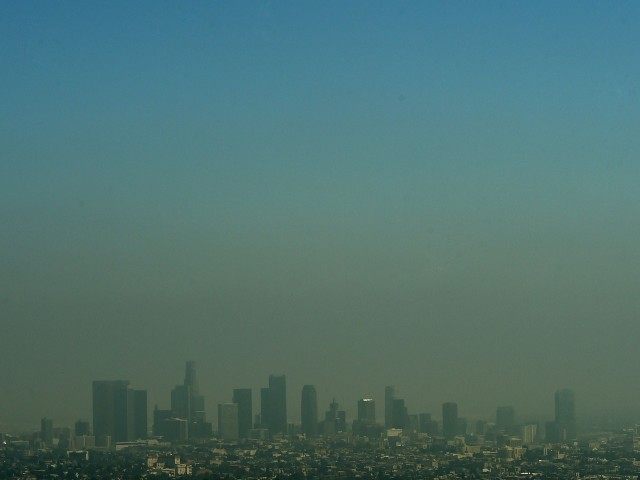Moody’s Global Credit Research has conducted a fiscal stress-test of the largest states in America — and has found that California was the least prepared to weather the next recession.
The average economic expansion in the United States since 1854 has lasted for 39 months, but the current expansion has lasted for 83 months. However, the percentage growth in this expansion has been less than half the average, wages are actually down, and productivity has only been a third of historical averages.
The only statistic that has achieved record growth is the federal debt, which is expected to have skyrocketed from $10 to $21 trillion during the eight year President Obama was in office.
Moody’s, as the premier credit rating agency, knows that the economy tends to be week in the first two years of a presidential cycle and peak just about the time of a presidential election. This cycle can be cynically explained by presidents managing the timing of government spending so that it peaks during their re-election period.
With the election just six months away, Moody’s began its recession watch by evaluating the ability of the four most populous US.. states to weather a potential recession in the next two years — based on revenue volatility, the ability of reserves to cover a potential first-year revenue shortfall, and greater revenue and spending flexibility.
The subsequent Moody’s Investors Service report “State Government — US: Fiscal Stress Test: Ability to Withstand Next Recession Depends on Reserves, Flexibility” found that Texas, rated Aaa stable, is better prepared than Florida, rated Aa1 stable; better than New York, at Aa1 stable; and far better than California, rated Aa3 stable.
Texas’s reserve levels, known as rainy-day or budget stabilization funds, provide substantially higher deficit coverage in a potential economic downturn, as reserves provide ample coverage for a major single year revenue decline. Florida also has adequate reserves to cover a deficit. But California and New York both fall short.
Emily Raimes, Moody’s Vice President and Senior Credit Officer commented, “The measures we assessed — revenue volatility, deficit coverage by financial reserves, revenue and spending flexibility, and fixed costs as a percentage of revenues — provide an indication of recession readiness of the most populous states during the next two years.”
While the initial research goes into depth with the four most populous states, Moody’s includes an appendix analyzing the same four criteria among the 20 most populous states. It found that the states of Texas, Missouri, rated Aaa stable, and Washington, rated Aa1 stable, are most prepared for a recession.
Moody’s specifically stated that California not only trails the three other largest American states, but in addition, due to its revenue volatility, weak financial flexibility, and lower reserve levels, California is tied with perennial economic underperformer Illinois, rated Baa1 negative, as the least prepared economically prepared for a recession:
“Historically, California has shown vulnerability as the center of the highly volatile tech industry and is reliant on personal income taxes, while Florida was the epicenter of the most recent housing slump,” Raimes says. Texas and New York have seen lesser declines amid lower oil prices and Wall Street downturns.
California 2015 tax collection through April was up $10 billion for the first 10 months of the fiscal year, mostly due to capital gains taxes. Collection of capital gains taxes jumped from $4.7 billion in 2010, to 11.9 billion last year, and could hit $15 billion in 2016.
But that tax is highly volatile, falling from $10.9 billion in 2007 to $2.3 billion in 2009. Consequently, a down stock market will quickly implode the California state budget.
As Breitbart News recently warned: “Like gamblers on a hot streak that seem to lose all sense of reality, and double-up their bets against high odds, California’s Governor Brown and the Democrat-controlled legislature are doubling-up spending on the welfare ‘magnet.’ But if the stock market takes a nasty hit and state revenues plunge, California will be just as broke as Greece.”

COMMENTS
Please let us know if you're having issues with commenting.